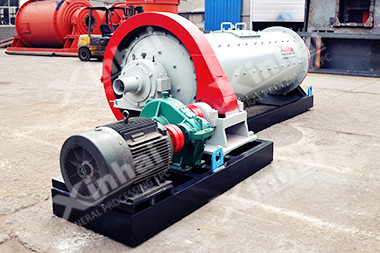- Home
- About
-
Mineral Processing EPC+M+O

Providing optimized solutions for your mine, one-stop service for mineral processing plant!
View details -
Product
- Grinding
- Classifying
Grinding & Classifying
- Flotation
- Gravity Separation Equipment
- Magnetic Equipment
- Gold Extraction Equipment
- Washing Equipment
Separating Process
- Thickening
- Dewatering Machine
Thickening & Dewatering
- Accessories
- Auxiliary Product
Consumables

Xinhai mineral processing equipment mainly include: grinding equipment, flotation equipment, dewatering equipment, magnetic separation equipment, and so on. Some of the equipment is Xinhai independent research and development, and has been awarded national patent. View details
-
Solutions
- Gold Tailings
- Tailings
Tailings

Gold CIP Production Line adsorbs gold from cyaniding pulp by active carbon including 7 steps: leaching pulp preparation, cyaniding leaching, carbon adsorption, gold loaded carbon desorption, pregnant solution electrodeposit, carbon acid regeneration, leaching pulp. View details
- Case
-
News
- Contact
Home Pruduct News What Should We Do If the Ball Mill Liner Wears Too Fast?
What Should We Do If the Ball Mill Liner Wears Too Fast?
2019-09-06 XinHai Views (2537)Ball mill is the main mineral processing equipment of concentrator, and it is also the equipment with a large proportion of investment in the construction of concentrator. Therefore, it is very important to ensure the grinding efficiency and service life of the ball mill. The ball mill liner, an important part of the ball mill, can not only effectively protect the ball mill cylinder, but also enhance the impact and stripping between the medium and materials, so as to improve the grinding efficiency.
Under the long-term action of grinding medium, the ball mill liner wears too fast. So, what are the reasons that cause the wearing problem of the ball mill liner? And what should we do to deal with this problem?
One. Wear between the ball mill liner and the steel ball
The ball mill liner and the steel ball of the ball mill are vulnerable parts. During the grinding process, the steel ball and the material fall down in a parabolic line in the cylinder body. At this time, the ball mill liner, the steel ball and the material collide with each other and produce friction.
In the continuous grinding operation, the ball mill liner will appear serious wear phenomenon with the steel ball, which is directly related to the hardness of the material. The harder the material, the faster wearing rate of the ball mill liner and steel ball, which can cause the equipment damage even safety accident.

In addition, the wear of the ball mill liner is also related to the steel ball. The size and number of the steel ball will affect the service life of ball mill liner. During the operation of the ball mill, the wear of the ball mill liner will be increased if the amount of steel ball or the diameter of the steel ball is increased.
Solution:
Choosing the suitable ball mill liner and steel ball is one of the main ways to reduce the wear rate of ball mill liner.
1. Relevant staff should know the ratio between the ball mill liner and the steel ball, and choose the corresponding size and quantity of the steel ball according to the ratio. Generally, the ratio of ball mill liner and steel ball of the conventional ball mill is about 1:0.8.
2. Control the ratio of materials and steel balls. the material is twice than the steel ball is appropriate.
3. Choose the right ball mill liner according to the mineral type, control the hardness of ball mill liner and steel ball, and make a reasonable match of steel ball and liner.
Two. Improper ball mill liner material
The ball mill liner material and its heat treatment process are the key factors to determine the mechanical properties of ball mill liner. The improper material of ball mill liner will greatly reduce its fatigue strength and life, which not only cannot meet the requirements of the ball mill, but also appear plastic deformation or bulge.

Solution:
Choosing the new wear-resistant ball mill liner material. Currently, the common material used in the ball mill liner includes high manganese steel, high chromium steel, alloy steel and wear-resistant rubber. Among them, wear-resisting rubber is the new type of ball mill liner material that rises nearly 10 years. The composite liner that is made of wear-resistant rubber and alloy steel not only improves the toughness of the ball mill liner, but also solves the contradiction between toughness and stiffness.
Three. Unreasonable ball mill liner heat treatment process
The unreasonable heat treatment of the ball mill liner will not only increase the wear of the ball mill liner, but also affect the yield strength of the ball mill liner, even the fixing bolt of the ball mill liner will break under the action of greater shear force.
In the actual operation, if the staff lacks the understanding of the quality of the ball mill liner or the reasonable heat treatment of the ball mill liner, the strengthening effect of the ball mill liner is not in place, and the deformation will often occur when the steel ball collides with the material.

Solution:
Preheating the ball mill liner can effectively reduce the wear degree of the ball mill liner. Please choose the suitable preheating process for the ball mill liner.
Four. Unnormal running of the ball mill
The ball mill liner will be influenced if the ball mill is in the abnormal running state. When the ball mill is in the normal operation, the steel ball mixes with the material. When the steel ball throws onto the ball mill liner, it forms a barrier with the material and plays a buffering role.
If the ball mill in a low load operation, the steel ball will directly impact the ball mill liner, causing serious wear of the ball mill liner, or even fracture.

Solution:
The relevant staff shall timely adjust the ball mill according to its running state. When the ball mill is running under a low load, the amount of ore fed into the ball mill shall be adjusted in time to ensure the grindability of materials.
In addition to the four wear reasons described above, the design, manufacture and installation of the ball mill liner may also cause its wear. In order to improve the using efficiency of the ball mill liner, the mine owners need to analyze the wear reasons for the ball mill liner, so as to formulate a reasonable solution.
Application projects of Xinhai ball mill
1. Russia 500tpd gold ore dressing project

2. Uganda 720tpd phosphorus ore dressing project

3. Malaysia 700tpd gold ore dressing project

4. Morocco 500tpd silver ore dressing project

5. Zimbabwe 700tpd gold ore dressing project

【Mineral Processing Case】Xinhai Mining – Malaysia 700tpd Gold CIL Project
None... [more]
Xinhai Successively Participated in Six International Mining Exhibitions in September
None ... [more]
Related Article
- Global Mining Industry Analysis: Trends, Challenges, and Opportunities in 2025
- Phosphate Ore Processing and Beneficiation Plant Design: A Comprehensive Engineering Approach
- Titanium Ore Beneficiation: Navigating Global Supply Shifts with Advanced Processing Solutions
- Lithium Ore Processing Methods: Efficient Extraction Techniques for Battery-Grade Lithium
- Improving Graphite Ore Processing for Efficiency and Purification
- Chrome/Chromite mining company in South Africa
- Efficient Chrome Ore Gravity Processing Plants: Cost-Effective Solutions for Mineral Recovery
- What machines are used in lithium processing?
- Manganese Ore Processing Methods and Equipment
- Cutting-Edge Lithium Processing: Advanced Techniques for Beneficiation and Refining
Mineral Processing EPC
Solutions
CONTACT US
- Tel: 0086 15901320633
- Fax: 0086 10 59621207
- Email: mhxu@xinhaimining.net
© 2017 Shandong Xinhai Mining Technology & Equipment Inc. Technical Support: Beijing Xinhulian Technology Co., Ltd.
Factory Address: No. 188, Xinhai Street, Fushan high-tech industrial development district, Yantai, Shandong, China






